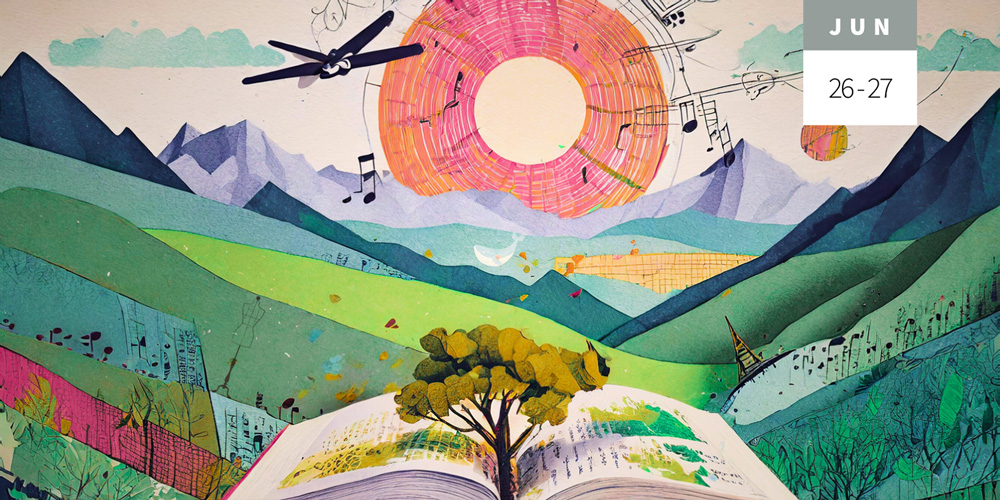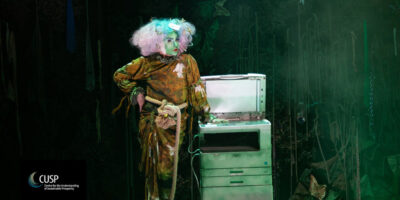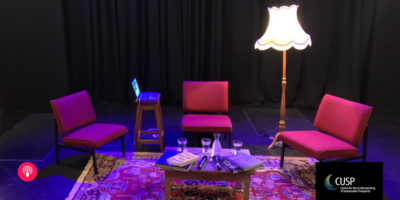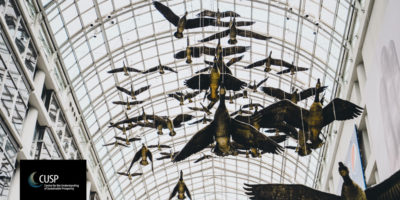
What now is proved was once only imagined.—William Blake
Workshop
Sustainability, Imagination and Aesthetics—An interdisciplinary workshop
Guildford, University of Surrey, 26-27 June 2024
. . .
How should literature, art, film and other creative media respond to the growing environmental crisis? How can they best assist the dual project of mitigating the threats we face and fashioning a more sustainable future? The poet William Blake proposes that before we can build such a future we must first imagine it. What is the nature and role of imagination and creativity in this context? What new imaginings do we need to inspire individuals, businesses and governments to take meaningful action against climate change and other environmental challenges? What work can be done in this regard by established artistic forms and literary genres, and where is there perhaps a need to develop more radically innovative, experimental forms and genres? And what lessons and potential strategies for communicating and promoting sustainability do creative engagements with this theme offer those working in other sectors such as education, conservation, heritage, science and technology? Can the arts and creative practices create democratic spaces for imagining sustainable futures and diversifying mainstream visions?
The 1½ day interdisciplinary workshop Sustainability, Imagination and Aesthetics (26-27 June 2024) will explore these issues, bringing together scholars, literary and artistic practitioners, filmmakers, activists and others so as to share insights and innovations and develop a pluralistic understanding of how literature, art and the creative sector more broadly might best speak to the environmental emergency.
Call for papers
To this end, hosted with the IfS, CUSP researcher Dr Anastasia Loukianov and Dr Carl Thompson from the School of Literature and Languages at the University of Surrey invite 250-word proposals for practitioner reflections/presentations* and/or project posters that might offer practical responses to the research questions above. More specific themes which participants might address include (but are not limited to):
- Examples of exciting new work in art, literature, film etc which address sustainability and climate issues, and emergent, innovative genres or forms: for example, climate fiction, solarpunk
- The potential affordances and limitations of different genres, forms and media in relation to promoting sustainability
- The role of imagination and/or aesthetics in environmental literature, art and communication
- The environmental effects, potentialities and wider implications of different sensory or aesthetic modalities (i.e, vision, sound, touch and proprioception, scent, taste) and their relationships with the arts
- The role of non-verbal media such as images, music, dance and sculpture in communicating and promoting sustainability
- Strategies and methodologies for assessing the success and efficacy of environmentally focused literature, art, film etc; ‘empirical ecocriticism’
- Using literature, art and other creative forms to engage communities with, or build communities around, sustainability issues
- The use of art, literature and other creative media (or creative practices) to promote sustainability in schools, museums, businesses and elsewhere
- The use of art, literature and other creative media (or creative practices) in sustainability science and technology
Framings of sustainability are encouraged that extend beyond environmental concerns and also consider the social and economic implications of living well in the long term on a finite planet. In this regard, the organisers welcome explorations of the role of arts and creative practices both in generating visions of environmentally, socially, and economically fair worlds, and in establishing inclusive processes to support the generation of these visions.
Closing date for submissions is 1 May 2024.
* Please note that the submission date for academic contributions has now closed. We now invite practitioners (artists/activists) to submit proposals for talks, demonstrations, and presentations. Please indicate in your proposal whether you would prefer the 10 minute or 20 minute format.
WHERE
Institute for Sustainability
University of Surrey
Guildford GU2 7XH
WHEN
26 – 27 June 2024
CONTACT
The workshop is co-organised by CUSP researcher Anastasia Loukianov and Carl Thompson from the School of Literature and Languages at the University of Surrey. Please send proposals to: SusCC@surrey.ac.uk.



